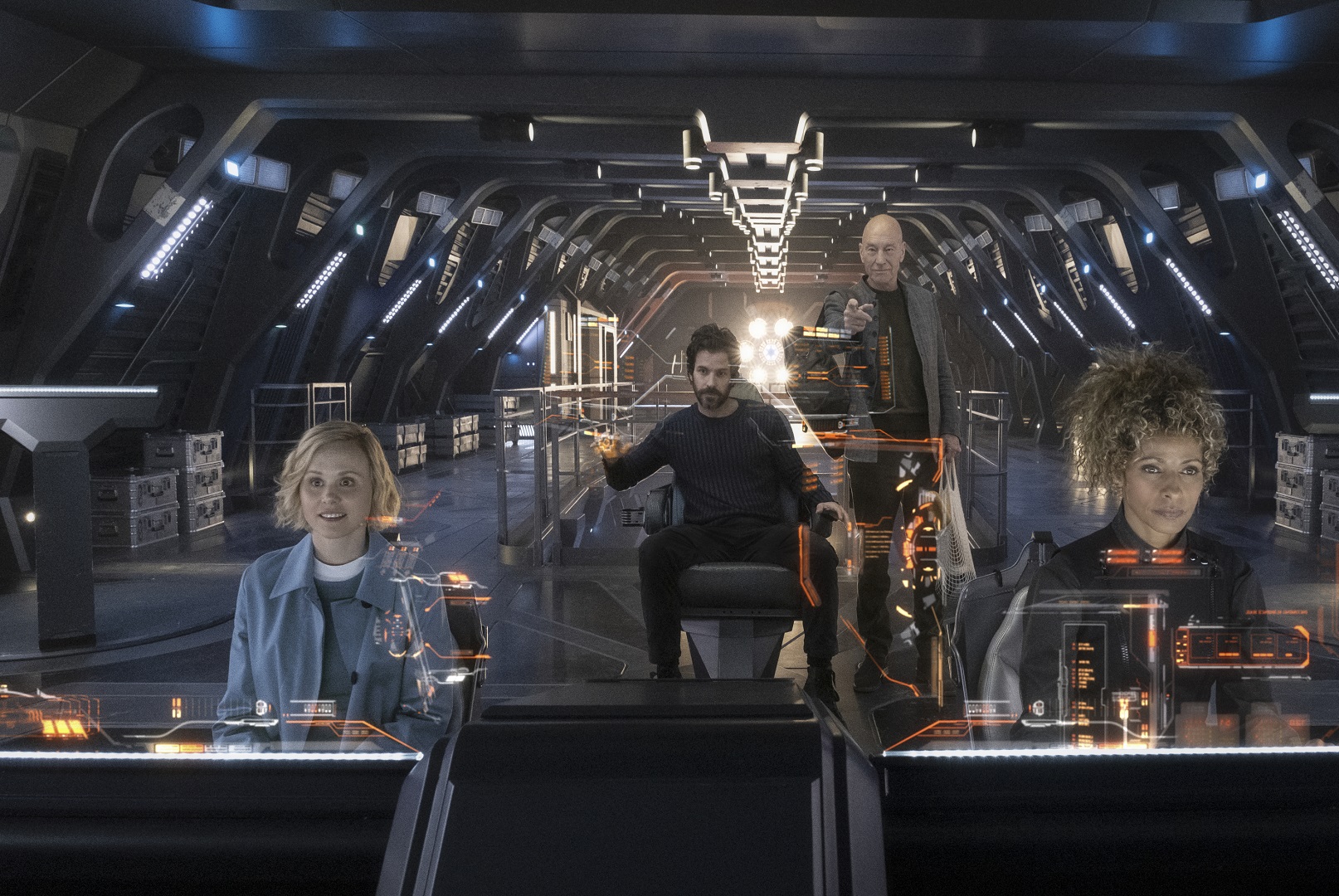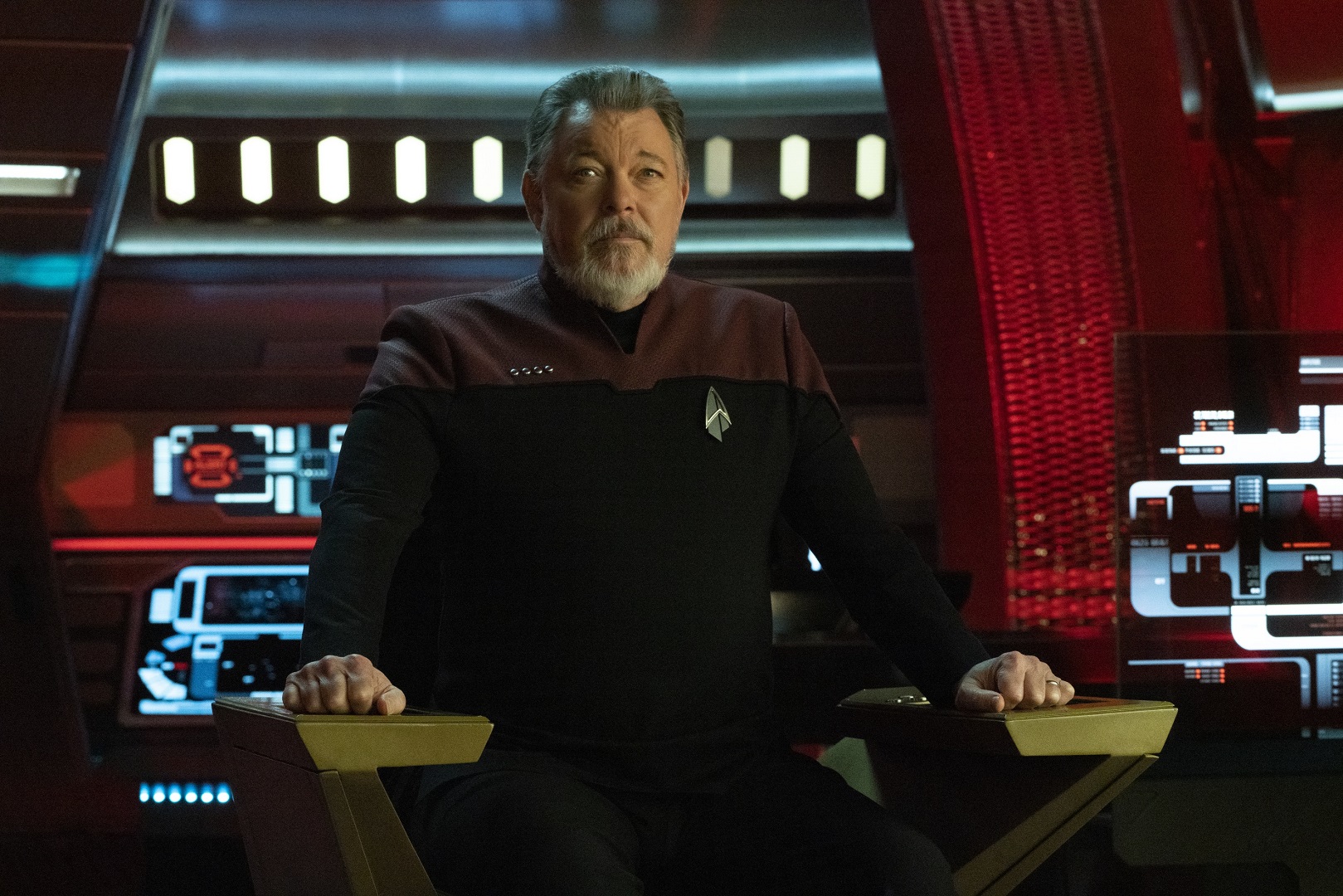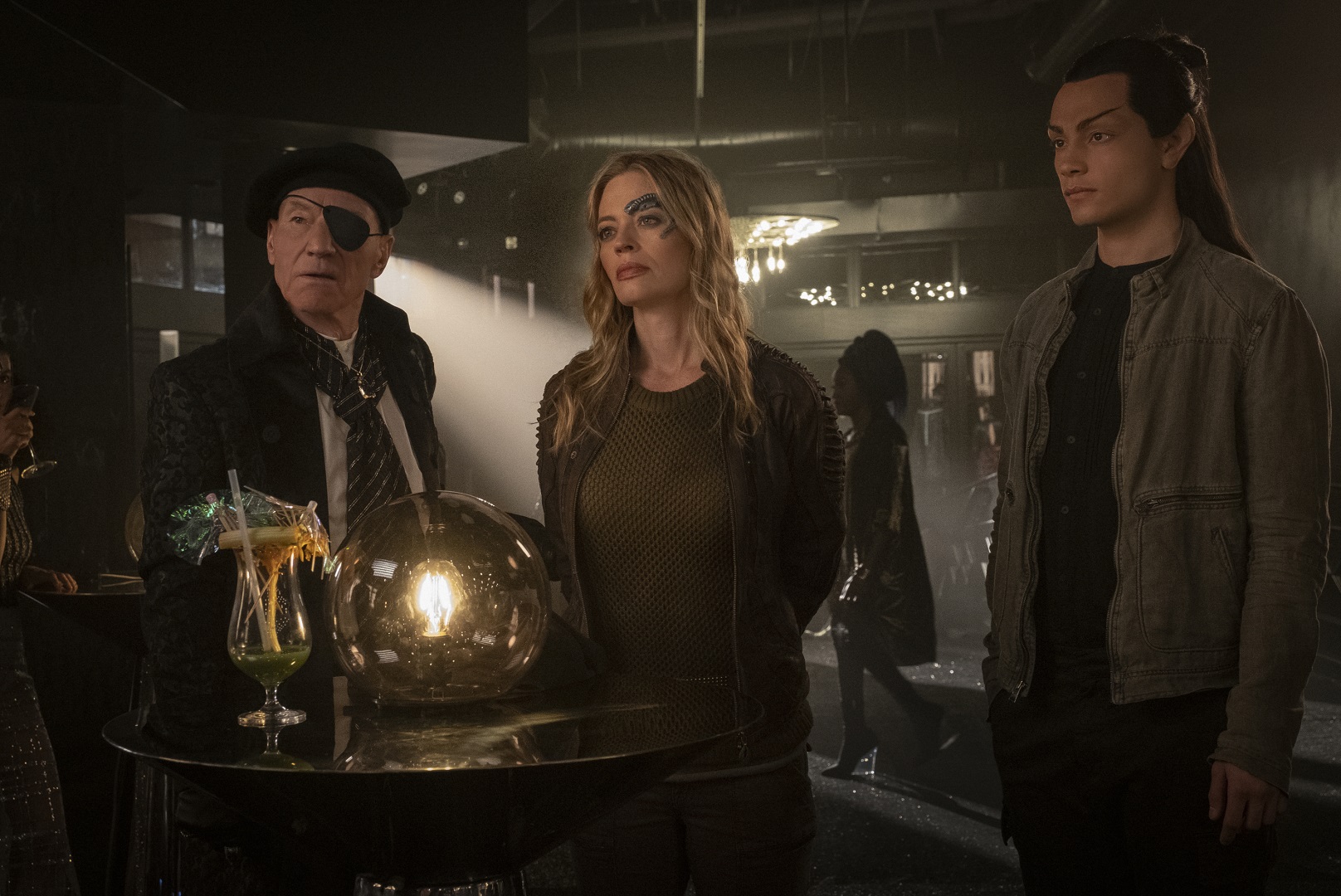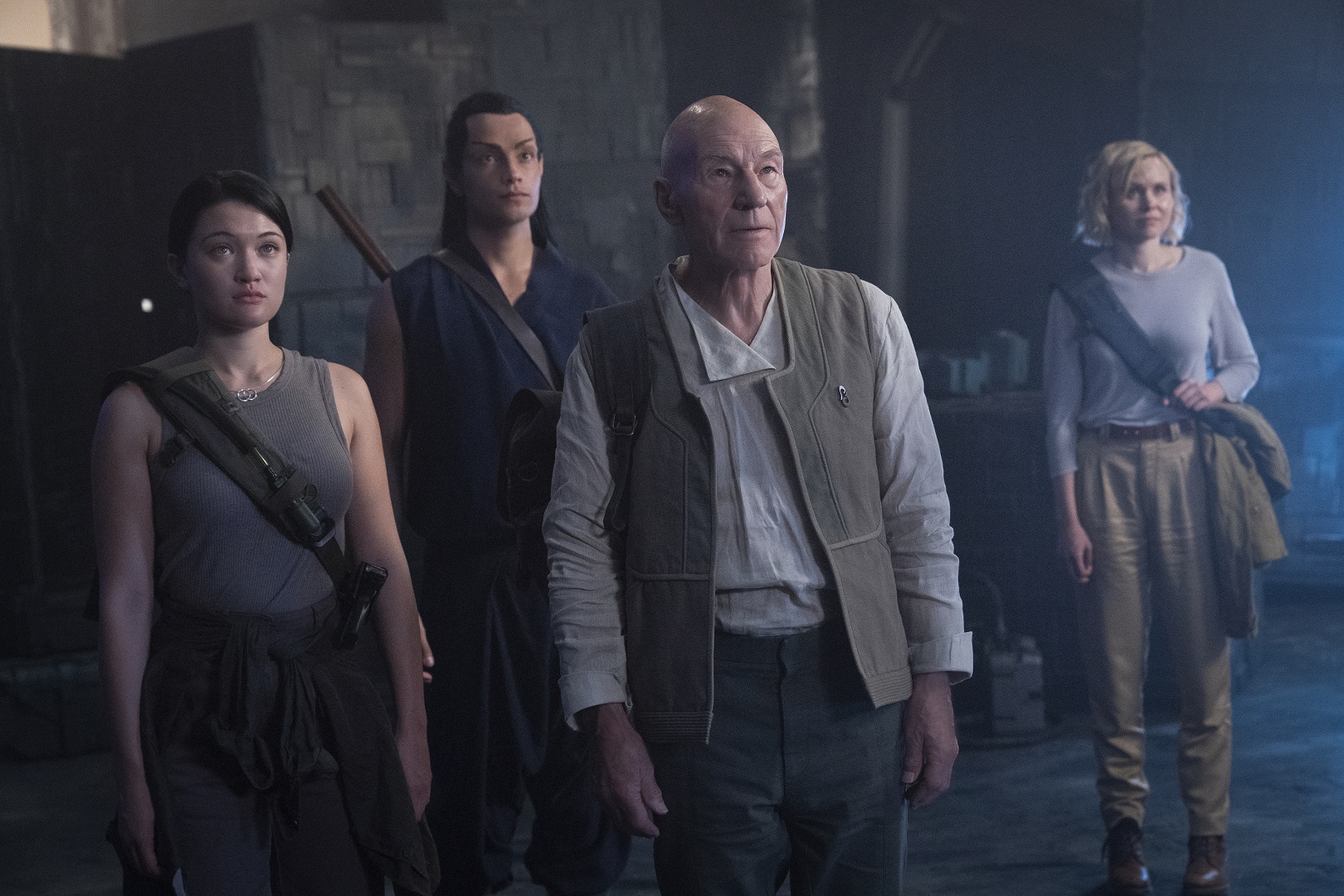Star Trek: Picard: What we loved, what we hated
Star Trek: Picard's first season had its ups and downs

The first season of Star Trek: Picard has come and gone, and we finally got to see our favorite Starfleet captain in action again. Over the course of the show’s 10 episodes, we saw Capt. Picard recruit a new crew, rescue a friend in need, call some old friends for help, cut through political intrigue and grapple with issues of morality. In other words: It’s exactly what you’d expect from a Star Trek show.
And yet, Star Trek: Picard didn’t feel very much like The Next Generation. The pacing, character development and overall narrative went in new directions that were sometimes bold, sometimes irritating, and sometimes both at once.
- Aside from Star Trek, is CBS All Access worth it?
- A guide to Star Trek: Picard's Next Generation characters
After the first episode of Star Trek: Picard, I was totally onboard with the show’s unconventional take on the setting and its respect for the source material. It also looked a lot slicker than TNG. But as the show progressed, I found myself less and less interested in Picard’s “tell, don’t show” storytelling and underdeveloped cast.
More Star Trek is almost always a good thing, of course, and certain episodes of Picard were downright charming, even if they never quite achieved the emotional resonance they were going for. The result is an uneven show that offers more frustrations than delights for longtime fans.
Since Star Trek: Picard Season 2 is already in the works, now is a good time to reflect on what worked in the first 10 episodes, and what didn’t. Perhaps, like The Next Generation, the show simply had some growing pains to work through in its first season.
This piece will contain spoilers for all of Season 1, so read at your own risk.

Star Trek: Picard: What worked
First off, it’s impossible to discuss Star Trek: Picard without also discussing its showrunner, Michael Chabon. The author of bestselling novels such as “The Amazing Adventures of Kavalier & Clay” (Random House, 2000) and “The Yiddish Policeman’s Union” (HarperCollins, 2007), Chabon is a lifelong Star Trek fan and a master of mixing pop culture with high art. It’s hard to imagine a better person to helm a Star Trek show.
Get instant access to breaking news, the hottest reviews, great deals and helpful tips.
Chabon infuses Star Trek: Picard with a seamless blend of humor, pathos and big ideas. But perhaps the best thing Chabon brings to Picard is a fan perspective. Chabon asked all the same questions that I’ve found myself asking for the past decade or more: How did Lt. Cmdr. Data’s death affect Picard? What happened to the Romulans after their homeworld was destroyed? Did the U.S.S. Voyager really stop the Borg’s invasion once and for all?
We get answers to all of those questions, and more. Better yet: None of the answers feels contrived, or walks back major plot points from previous Star Trek series. Not every character wound in a good place; not every situation got resolved. But where Picard begins makes a great deal of sense, considering where Nemesis ended. Chabon shows incredible attention to detail and resists turning a “20 years later” show into a wish-fulfillment fantasy.
On the other hand, I’m not made of stone, and I really did enjoy some of Picard’s fanservice. I loved seeing Data in dream sequences; I especially loved the “lean back and catch our breath” episode where Picard spends a good 40 minutes reminiscing with Capt. Riker and Cmdr. Troi, making pizza. It reminds us of why we fell in love with the TNG cast in the first place, and that Picard’s officers aren’t just his subordinates; they’re his family. I was also a big fan of seeing Seven of Nine in a fairly major role, as cross-series cameos are always a treat for longtime Trek fans.
Some of the ship battles were fun to watch, particularly La Sirena against the old-school Romulan warbird. I almost wish we’d gotten to see a large-scale fleet battle in the final episode, although I understand why it wouldn’t have worked from a narrative perspective.

Star Trek: Picard: What didn’t work
Still, when I think back on the full experience of watching Picard, my reaction is mostly a shrug. It happened. I wasn’t usually bored while watching it. Some of its resolutions felt satisfying. But I waited 10 episodes for the show to coalesce into something special, and it never did.
While it’s usually easy to pinpoint what makes a show great or terrible, it’s much harder to put your finger on what makes a show mediocre. Still, I can elaborate on three major criticisms: Stilted storytelling, a lackluster supporting cast and a general sense that Picard covered the exact same ground as the last two times the TNG story “ended.”
First off, as much as I’ll generally sing Chabon’s praises, his reach sometimes exceeds his grasp when it comes to dialogue. This is an issue in his books, too. Some exchanges are extremely clever; other exchanges only think they’re extremely clever. When I watched characters declare exactly how they’re feeling and tell endless variations on two or three quasi-jokes, I couldn’t help but wonder when the next space battle was coming. There’s no nuance or subtlety to Picard’s big moral speeches; it’s all about right and wrong in pretty black-and-white terms. Granted, Star Trek’s allegories are often extremely on-the-nose, but most other series veil them with enough sci-fi trappings to make viewers question their own preexisting views and beliefs.
Picard’s pacing, too, presents a big problem. The main thrust of the series — the watershed problem Picard has to solve in order to bridge the first and third acts — is finding Dr. Soji aboard the reclaimed Borg Cube. This takes six episodes to resolve — 60 percent of the show. I understand that part of prestige TV’s appeal is that we no longer have to cram full storylines into 45-minute blocks, but that is a long time to spend on the least interesting part of the story.
That also means we get less than four episodes to build up an entire android society and a Mass Effect-style synthetic threat from beyond known space. We learn, out of nowhere, that Soji had two more twins and that Data’s creator had a hitherto-unmentioned biological son. Riker gets to command an entire Starfleet battalion, despite never rising above the rank of captain. Why does any of this happen? None of it is inconceivable, but none of it is really justified, either. It seems to happen because the plot needs it to, which is almost always the worst kind of storytelling. See also Picard’s tragic, inspiring death — and his meaningless resurrection five minutes later.
Then there’s the supporting cast, about whom I could never bring myself to care. Raffi, Rios and Jurati seem to have about two personality traits apiece; Elnor has only one. We learn their backstories in huge exposition dumps, and their character arcs take them all the way from “distrusting Picard” to “trusting Picard.” I understand why it would have been unsatisfying to simply use the whole TNG crew again, but I would rather have had one or two fully developed characters than four or five broad strokes. (I liked Narissa, though. She seemed to be the only one having fun.)
Picard’s biggest shortcoming, however, is that it didn’t have any emotional resonance — or, if it did, it was exactly the same emotional resonance we already experienced in All Good Things… and Nemesis. Yes, Picard is older and frailer, and the rest of the world has moved on. Yes, Data dies without ever fully completing his quest to become more human. Yes, the Federation turned its back on old allies out of political expediency. But we already experienced all of this in other TNG episodes and movies. I’m not sure what makes this show a better ending for Picard and Data than the last two TNG finales.

Star Trek: Picard: Bottom line
I keep reminding myself that TNG itself had a mostly throwaway first season, followed by a much-improved second, and a best-in-class third. I had hoped that with seven seasons and four movies of TNG behind it, Picard could hit the ground running, but it didn’t. The show was entertaining in fits and starts, but it never really felt cohesive.
As The Rise of Skywalker did for Star Wars, Star Trek: Picard made me wonder why we keep coming back to the same old stories in a fictional universe that has the potential for so much more. It’s comfort food, sure, but sometimes comfort food isn’t all that nutritious.

Marshall Honorof was a senior editor for Tom's Guide, overseeing the site's coverage of gaming hardware and software. He comes from a science writing background, having studied paleomammalogy, biological anthropology, and the history of science and technology. After hours, you can find him practicing taekwondo or doing deep dives on classic sci-fi.
